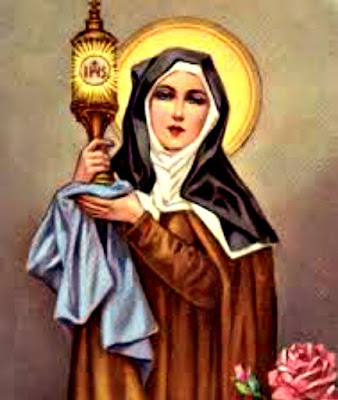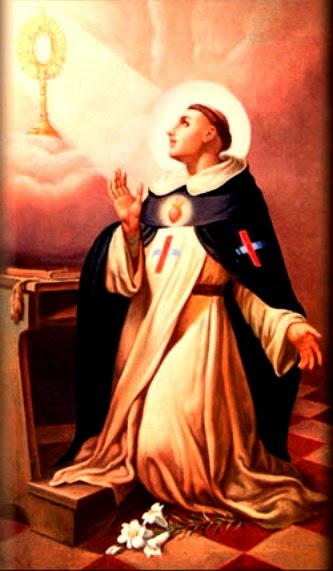St. Basil the Great and St. Gregory Nazianzen

By celebrating the feasts of St. Basil the Great and St. Gregory Nazianzen on the same day, the Church praises a virtue which has always been held in high esteem, friendship. The friendship between Basil and Gregory was admirable. Born in Cappadocia around 330, they studied together in Athens and then returned to their homeland where they led a monastic life for several years. Gregory lived with Saint Basil in the beautiful surroundings at the monastery at Pontus on the Iris River. Their temperaments were quite different. While Basil had the qualities of a leader and a gift for organization that made him a legislator for monks in the east, Gregory was a contemplative and a poet. Their frequent discussions on theology and monasticism bore fruit in the active organization of Basil and the theological depth and penetration of the contemplative Gregory.
Although they were both called to be bishops, they did not succeed equally well in these positions. In his native city of Caesarea, Basil was a courageous pastor. Through his writings and many interventions, he defended the independence of the church in the face of earthly power and promoted the dignity of the poor, who were frequently ridiculed by the rich. Above all else, he defended the faith.
As for Gregory, after he became bishop of the same town of Sasimes in 371, he found himself promoted to the see of Constantinople, and then in the throes of the Arian crisis. In Constantinople his eloquent preaching at the Church of Anastasia (his house that he converted into a church) brought floods of converts. People were greatly encouraged by his homilies, and viewed him as the father of the poor. At the same time, Gregory has viciously attacked by the Arians. Gregory, a gentle, peace-loving, and private person, was more fitted for the life of a contemplative scholar than that of an active administrator in a hostile environment. In less than a year and a half, he returned to Nazianzen, which was still without a bishop, and administered the see until a successor was appointed. About 384 he retired to an austere private life. He spent his time pursuing his love of study, writing and enjoying his garden with its fountains and shady groves. During these years, he wrote religious poems and his autobiography. Here in Nazianzus he died. He was called "the Theologian," a man who could speak of God, while Basil received the title of "the Great". The Orthodox Church has placed Basil, Gregory, and John Chrysostom in the first rank of ecumenical doctors and they are referred to as "the three Hierarchs."
As a writer, Gregory stands far above most other Greek Doctors and is often called "the Theologian" or "the Divine" for the depth and eloquence of his defense of orthodoxy. Among his best known works are his sermons on the Trinity, Five Theological Orations, which were delivered at the Church of Anastasia (the Resurrection); a long poem, De vita sua; letters; and a selection of writings by Origen (compiled with Saint Basil).
Quotes:
"Let it be assured that to do no wrong is really superhuman and belongs to God alone."
~ Saint Gregory Nazianzen
"God accepts our desires as though they were of great value. He longs ardently for us to desire and love him. He accepts our petitions for benefits as though we were doing him a favor. His joy in giving is greater than ours in receiving. So let us not be apathetic in our asking, nor set too narrow bounds to our requests; nor ask for frivolous things unworthy of God's greatness."
~ Saint Gregory Nazianzen
"Let us not esteem worldly prosperity or adversity as things real or of any moment, but let us live elsewhere, and raise all our attention to Heaven; esteeming sin as the only true evil, and nothing truly good, but virtue which unites us to God."
~Saint Gregory Nazianzen
"Basil and I were both in Athens. We had come, like streams of a river, from the same source in our native land, had separated from each other in pursuit of learning, and were now united again as if by plan, for God so arranged it. When, in the course of time, we acknowledged our friendship and recognized that our ambition was a life of true wisdom, we became everything to each other; we shared the same lodging, the same table, the same desires, the same goal. Our love for each other grew daily warmer and deeper. The same hope inspired us: the pursuit of learning. We seemed to be two bodies with a single spirit. Our single object and ambition was virtue, and a life of hope in the blessings that are to come. We followed the guidance of God's law and spurred each other on to virtue. If it is not too boastful to say, we found in each other a standard and rule for discerning right from wrong. Different men have different names, which they owe to their parents or to themselves, that is, to their own pursuits and achievements. But our great pursuit, the great name we wanted, was to be Christians, to be called Christians. "
~from a sermon by Saint Gregory Nazianzen
"Today let us do honor to Christ's baptism and celebrate this feast in holiness. Be cleansed entirely and continue to be cleansed. Nothing gives such pleasure to God as the conversion and salvation of men, for whom his every word and every revelation exist. He wants you to become a living force for all mankind, lights shining in the world. You are to be radiant lights as you stand beside Christ, the great light, bathed in the glory of him who is the light of heaven. You are to enjoy more and more the pure and dazzling light of the Trinity, as now you have received - though not in its fullness - a ray of its splendor, proceeding from the one God, in Christ Jesus our Lord, to whom be glory and power for ever and ever. Amen. "
~from a sermon by Saint Gregory Nazianzen on the Feast of the Baptism of the Lord
"The bread you store up belongs to the hungry; the cloak that lies in your chest belongs to the naked; the gold that you have hidden in the ground belongs to the poor. If everyone would take only according to his needs and would leave the surplus to the needy, no one would be rich, no one poor, no one in misery."
~ St. Basil the Great
Prayer
Dear Jesus, Saints Basil and Gregory were dear friends, united in love for You. Inspired by their example, I want to grow in my friendship with You. Bless every alliance in which I'm involved, and if any are not of You, remove them from me. I ask these special saints to pray that I grow in patience, understanding, and service to the people God has placed in my life. Help me, Lord Jesus, to give to You all the grudges, resentments, misunderstandings, and prejudices that have been interfering with my friendships. Replace these sinful tendencies with Your Perfect Love. Saints Basil and Gregory, pray for me. Amen.
~ excerpted from Daily Prayers With The Saints For The New Millennium
by Terry Ann Modica




Comments
Post a Comment
Comments are moderated and are published at the blogger's discretion.